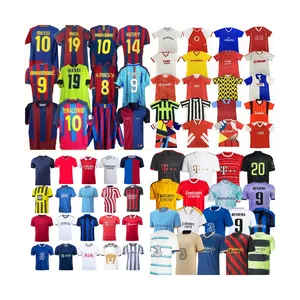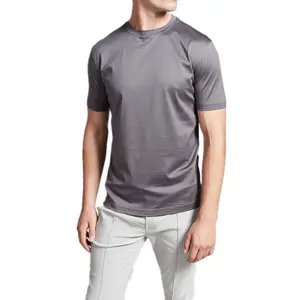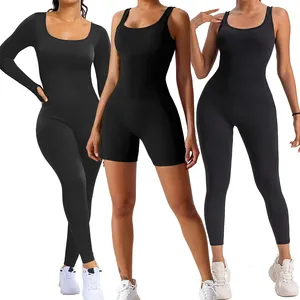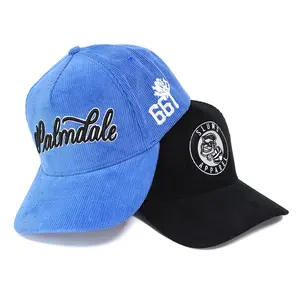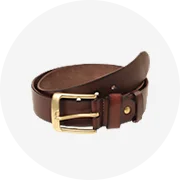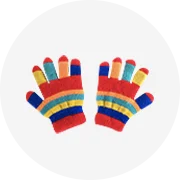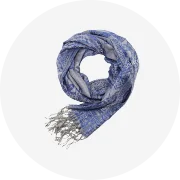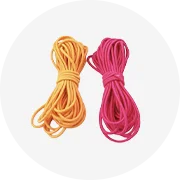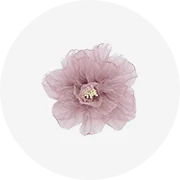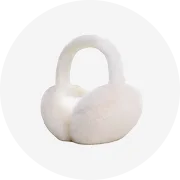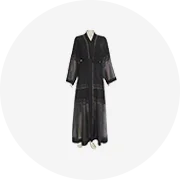Popular in your industry






































































Top categories
About used denim jackets
In the tapestry of modern fashion, sustainability has become the warp and weft that holds the industry together. Amidst this green revolution, used denim jackets are emerging as the vanguards of eco-conscious style, transforming the way we think about fashion retail. This article delves into the heart of sustainable fashion, exploring how recycled denim is rewriting the narrative of apparel consumption. We'll uncover the lifecycle of denim, its transformation from a beloved classic to a symbol of environmental responsibility, and how platforms are catalyzing this change. Join us as we stitch together the story of how used denim jackets are not just a fashion statement, but a revolution in the retail world.
The Rise of Sustainable Fashion
The fashion industry is witnessing a significant shift towards sustainability, with a growing emphasis on eco-friendly practices. This movement is driven by consumer awareness and the desire for products that align with ethical values. A notable trend is the production of garments from recycled materials, such as plastic waste, which not only reduces carbon emissions but also minimizes waste. Brands are increasingly committing to sustainability, with some leading the way through quality materials and durable products that make unique fashion statements.
Another aspect of this sustainable shift is the rise of cruelty-free and vegan fashion. The market for apparel that does not harm animals has seen substantial growth, reflecting consumer preferences for ethical fashion choices. Additionally, the use of data and AI in the industry is optimizing trend predictions and sales strategies, leading to a reduction in unsold stock and a smaller carbon footprint for fashion brands.
Transparency is becoming crucial, with initiatives like digital passports for goods, enabling consumers to access detailed product information. This push for clarity is likely to increase accountability and discourage misleading eco-friendly claims. Furthermore, the fashion industry is preparing for more stringent regulations aimed at promoting greener practices and reducing pollution, in line with global environmental targets.
Understanding the Lifecycle of Denim
Denim's journey from a wardrobe staple to a sustainable fashion icon involves a comprehensive lifecycle. Initially, denim is crafted, often from cotton, and shaped into the jeans we wear. Over time, these garments may fray or go out of style, leading to their disposal. However, the rise of sustainability has given denim a new lease on life. Through recycling, old denim is transformed back into its natural cotton state, ready for a new purpose. This process includes treating the reclaimed cotton for fire resistance and mold prevention, making it suitable for applications like home insulation. Moreover, creative repurposing has seen denim evolve into various products, from casual summer shorts to quilts and even sandals, showcasing the material's versatility. The lifecycle of denim is a testament to the potential of recycling, emphasizing the importance of reusing materials to minimize waste and contribute to a more sustainable fashion industry.
The Role of Platforms in Sustainable Fashion
Online platforms play a pivotal role in promoting sustainable fashion, particularly through their array of used denim jackets. These garments represent a shift towards more eco-conscious apparel choices in the fashion industry. By offering a platform for a diverse range of environmentally friendly jeans, these platforms enable retailers to stock up on sustainable options that cater to the growing demand for eco-friendly clothing. The commitment to sustainability is evident in the support for the sale of used denim, which extends the lifecycle of denim products and reduces waste.
The site's assortment includes a variety of used denim jackets that have been given a new lease on life, aligning with the sustainable fashion movement. These pieces not only offer a timeless and hardy look but also contribute to a more sustainable wardrobe. The role of these platforms extends beyond just a marketplace; they foster a community where sustainable practices are encouraged and where retailers can find products that support ethical fashion. The involvement in sustainable fashion underscores the importance of responsible sourcing and the positive impact of reusing materials in the fashion industry.
Types of Used Denim Jackets

The assortment showcases a diverse range of used denim jackets, catering to various styles and preferences. Among the offerings, vintage denim jackets stand out, with options like oversized women's jackets, men's zip-up designs with turn-down collars, and distressed work jackets for a rugged appeal. The collection also features unique pieces such as cropped jackets with flap pockets and regular fits, alongside unisex jeans jackets adorned with printing and embroidery, adding a personalized touch to classic styles.
The collection extends to include denim cotton fabric jackets, emphasizing the blend of traditional craftsmanship with modern design. For those seeking a distinctive look, there are jackets with camouflage patterns, color block designs, and even hand-made ethnic prints, reflecting the global influences in fashion. Additionally, the assortment includes utility jackets with custom logos, oversized baggy styles for a relaxed fit, and retro-style indigo blue jackets that echo classic American fashion.
For women, the selection is equally impressive, featuring casual loose blue washed jackets with a ripped aesthetic, plus-size options, and designs with unique details like leopard patch pockets and raw hems. These used denim jackets not only offer style and variety but also represent a step towards sustainable fashion, aligning with the growing demand for eco-friendly clothing choices.
Customization and Personalization of Denim
Customizing denim jackets is a creative way to express individuality and style. The process can involve distressing, dyeing, and decorating, using tools like sandpaper for a distressed look without damaging the fabric. Colorful acrylics or fabric spray paints, alongside stencils, can add a personal touch. For a quick and changeable customization, pins offer a way to showcase interests and can be easily swapped out as tastes change. Enamel pins, in particular, can reflect a wide array of passions, from pop culture to science themes.
Another dynamic method is splatter painting, a technique that can give a nod to retro fashion while allowing for modern twists, like the inclusion of metallic hues. For those less inclined to DIY, supporting artists who specialize in these customizations can be an alternative. Patches offer a throwback to vintage styles and can be layered for a unique look. Stencil designs can range from bold graphics to subtle motifs, providing options for all levels of artistic ability. These methods not only personalize a jacket but also give it a new lease on life, aligning with sustainable fashion practices.
Material and Quality Considerations
Denim, traditionally a cotton-based fabric, has evolved with the inclusion of materials like elastane and stretch polyesters to enhance comfort and fit. However, this shift has implications for sustainability and recyclability. Conscious brands are now incorporating softer, eco-friendlier fibers along with sustainable options like better-sourced cotton, organic materials, recycled elements, and hemp. The complexity of sourcing better-sourced cotton due to global demand constraints highlights the challenges in the industry's shift towards more sustainable practices.
The production of denim, particularly the dyeing process, has historically relied on significant water usage and harsh chemicals, raising ethical and environmental concerns. Innovations like foam dyeing and 'spun dyed' yarns are emerging as alternatives to reduce water consumption and eliminate the need for garment dyeing. Brands are encouraged to use certified eco-friendly or natural dyes to minimize the impact of toxic processes.
The quality of denim is also a reflection of its production practices. Techniques that can pose health risks to workers are being replaced by safer methods such as stone-washing and laser treatments. The move towards ethical labor practices and environmentally conscious manufacturing is a growing trend among denim brands, aiming to balance the demand for durable and stylish denim with the need for responsible production.
Advantages of Sourcing from Alibaba.com

Alibaba.com emerges as a significant player in the realm of sustainable fashion, particularly in the sourcing of denim. The platform offers a diverse array of denim fabrics, including organic options that cater to the growing demand for eco-friendly materials. Buyers have the opportunity to explore a range of denim suited for jackets, with the added benefit of engaging with suppliers that specialize in sustainable practices. This not only supports the environment but also aligns with the ethical standards expected in modern fashion retail.
The versatility of denim on Alibaba.com extends to various blends and compositions, accommodating the needs of different market segments. From sturdy cotton denims to innovative blends that offer stretch and comfort, the platform provides materials that are both durable and fashionable. This versatility ensures that retailers can source denim jackets that meet their specific design and quality requirements, enabling them to offer products that stand out in the competitive fashion industry.
Furthermore, Alibaba.com's global reach allows for the sourcing of materials at competitive prices, which is crucial for businesses looking to maintain profitability while offering sustainable products. The platform's structure facilitates direct communication with manufacturers, fostering transparency and the ability to verify sustainable and ethical production methods. This direct line of communication is invaluable for retailers who prioritize the story behind their products, from the raw materials to the finished garment.
Sustainability and Ethical Practices in Production
Denim production has traditionally been associated with high environmental costs, particularly in terms of water usage and chemical management. Brands are increasingly adopting tools to track and manage water consumption throughout their supply chains. This reflects a broader commitment within the industry to reduce the ecological footprint of denim manufacturing.
The use of chemicals in the production of denim, especially for dyeing, has raised ethical concerns. Efforts are being made to transition to less water-intensive and more eco-friendly dyeing processes. Innovations such as foam dyeing and the use of spun dyed fibers are examples of how the industry is evolving. Brands are also encouraged to use certified eco-friendly or natural dyes to minimize environmental harm.
Moreover, the ethical implications of denim production extend to labor practices. There is a history of exploitation within the industry, but there is also a movement towards more ethical practices. Brands are taking steps to ensure the welfare of workers by adhering to codes of conduct and seeking certifications that promote fair labor practices.
In summary, the denim industry is witnessing a shift towards more sustainable and ethical production methods. This includes a focus on reducing water usage, minimizing the use of harmful chemicals, and improving labor conditions. These practices are not only beneficial for the environment but also for the communities involved in the manufacturing process.
Case Studies: Success Stories of Retailers on Alibaba.com
A U.S. brand with a unique line of products exemplifies a success story on Alibaba.com. The brand gained popularity in China after an interactive livestream allowed the founder to directly engage with customers, offering a personal touch that resonated with the audience. This authentic approach led to a significant sales boost, with months' worth of inventory sold in mere minutes.
Another example involves a well-established brand that leveraged Alibaba's insights to innovate and cater to local tastes. By collaborating with the platform's innovation center, the brand co-created a new product variant that aligned with the unique preferences of Chinese consumers. This collaboration underscores the potential of Alibaba.com for brands to not only enter but also thrive in the Chinese market by adapting to its consumer culture.
These case studies demonstrate how Alibaba.com serves as a bridge for U.S. retailers, helping them to understand and engage with the vast Chinese market. The platform's ability to facilitate direct interaction with consumers and provide valuable market insights has proven to be a game-changer for brands looking to expand their global footprint.
Conclusion
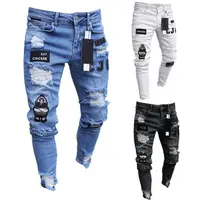
The journey of the humble denim jacket, from a fashion staple to a beacon of sustainability, encapsulates the transformative power of eco-conscious consumerism. As we've seen, the fashion industry is embracing a greener ethos, with recycled materials and ethical practices becoming the new benchmarks of quality. Alibaba.com stands at the forefront of this movement, offering a marketplace that champions the longevity of denim and supports the shift towards more sustainable fashion choices. The platform's diverse range of used denim jackets, coupled with its commitment to ethical production, provides a blueprint for the future of fashion retail. Retailers' success stories on Alibaba.com highlight the potential for innovation and adaptation in a market increasingly driven by sustainability. In conclusion, the revolution of used denim jackets in fashion retail is more than a trend; it's a commitment to a future where style and sustainability walk hand in hand, paving the way for a more responsible and environmentally conscious industry.
